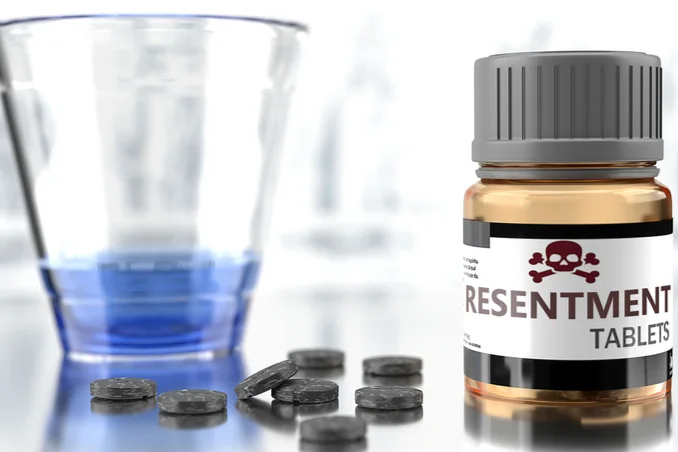The Toxic Nature of Resentments
Table of Contents
No matter how effective and bulletproof your individual plan of recovery may be, there are situations in which those plans can come undone and you can end up back at square one in your sobriety. The biggest threat to your recovery is the powerful negative emotions that you can feel, and none are more powerful or damaging than resentments. It makes sense, then, that overcoming resentments is a key part of a successful recovery, both in early efforts and throughout the recovery process.
Unresolved and persistent feelings of anger, mistrust, or bitterness can consume you if you leave them unchecked, and dwelling on these emotions takes your focus and energy away from your recovery–and it is only a matter of time before you experience a substance abuse relapse.
Addiction and substance abuse is a family disease, and for those who are in recovery feelings of resentment have lasting and far-reaching effects on the relationships between family members. Individual family members of addicts may feel resentment toward the addict for causing them to have so many bad experiences and emotions. Additionally, addicts who are in recovery from substance abuse often develop feelings of resentment toward family members especially if there are feelings of mistrust. The best way that you and your family members have in overcoming resentments is to undergo family therapy in the safe and supportive setting of drug treatment.

24 Hour Substance Abuse Hotline – Get Help Now
(877) 633-0053
Understanding Resentments Caused by Substance Abuse
Resentment refers to the mental process of repetitively replaying a feeling and the events that accompany that feeling to the point that it angers us. When we feel resentful towards someone, we aren’t simply replaying the facts in our minds. Instead, we are re-experiencing and reliving those events in ways that affect us emotionally, physiologically, and spiritually–and the effects can often be very destructive. As stated in the introduction to this article, resentment probably constitutes the single most devastating impediment to repairing a relationship within a family or a friendship.
Although resentments can flare up due to a recent and volatile conflict between people, the source of resentments goes much further back. For example, your parent, child, sibling, or partner may accuse you of a recent snub or slight, but the spark that ignites that anger is more than likely fueled by years of other imagined or real episodes of disrespect or disregard that have occurred.
In the case of ongoing alcohol or drug use by both partners in a relationship or marriage, giving consideration to couples rehab may make sense. After all, it can be hard to get over resentments if you (and your loved one) are both creating them together on a daily basis!
The Dangers of Resentment in Recovery
If you are looking to overcome resentment in recovery, it can be a difficult process. As already stated, the roots of resentment are long-standing and run deep and any perceived slight or disrespect can allow resentment to rear its ugly head. For example, you can feel resentment if you feel that family members aren’t giving you the credit you deserve for putting effort into your recovery. You can also feel a sense of resentment in your recovery if family members continue to distrust you and your motives.
If recovery is more difficult than you have imagined, you may feel resentment towards counselors, treatment staff, friends in recovery, or family for not helping you enough. Additionally, you may feel resentment towards others in recovery who are doing well.
The obvious danger of resentment in recovery is the fact that you are focusing on what others are doing and not on what you need to do in order to improve your situation. If you are unable to get past resentments in your recovery, you can develop what is known as a dry drunk syndrome.
With this phenomenon, you no longer have a physical craving for substances, but you still have unresolved psychological and behavioral issues that stem from your addiction. If you truly seek long-term recovery, it is vital that you address resentments and other lingering emotional issues that have kept you stuck. While individual therapy is beneficial, also undergoing family therapy will give you the best chance at addressing resentments in your recovery.
Family Therapy for Substance Abuse: Overcoming Resentments
Family therapy is a crucial element in not only helping the addict recover from substance abuse but also helping individual family members heal and recover as well. When families successfully complete a family therapy program, they have worked through the dysfunction and chaos that resulted from a loved one’s substance abuse and have restored healthy communication and relationships. When resentments are overcome in recovery, the addict returns to an environment that is nurturing, supportive and empowering.
Family therapy can help you and your family overcome resentments and other obstacles in a number of ways. First, you and your family will realize that resentments are an addictive state of mind. As with any addiction, you must explore the underlying roots of those feelings and emotions. With the help of a therapist, you and your family will get the tools and support they need to overcome those issues and you can learn to cope with adversity in a healthy manner.
Therapists can utilize cognitive behavioral therapy and other effective therapy options so the entire family can acknowledge the thoughts and behavior patterns that can give rise to resentments in a safe and supportive environment.
Family therapy can also aid in eliminating resentments in recovery in the fact that each family member can learn the art of forgiveness. When you learn to forgive, you understand that you cannot change what has happened in the past. Additionally, when you forgive you give yourself permission to move on and heal. Additionally, family therapy helps the family overcome resentments by allowing each member to openly acknowledge their part in a loved one’s addiction, give them the space to forgive or ask for forgiveness, and be able to move forward.
24 Hour Addiction Treatment Hotline – Get Help Now
(877) 633-0053
Dealing with Resentments in Recovery Will Help You Heal
If you are struggling with substance abuse, your entire family struggles along with you. With the help of family therapy programs that are offered at many addiction treatment programs, the entire family can come together and address the issues that keep all family members stuck in the vicious cycle of addiction. Our experienced therapy staff will give you the tools and support you need to become healthy, strong, and confident. Call Find Addiction Rehabs today to find out the best programs for addiction and family therapy across the country.
Edward lives and works in South Florida and has been a part of its recovery community for many years. With a B.A. in English Literature from the University of Massachusetts, he works to help Find Addiction Rehabs as both a writer and marketer. Edward loves to share his passion for the field through writing about addiction topics, effective treatment for addiction, and behavioral health as a whole. Alongside personal experience, Edward has deep connections to the mental health treatment industry, having worked as a medical office manager for a psychiatric consortium for many years.


